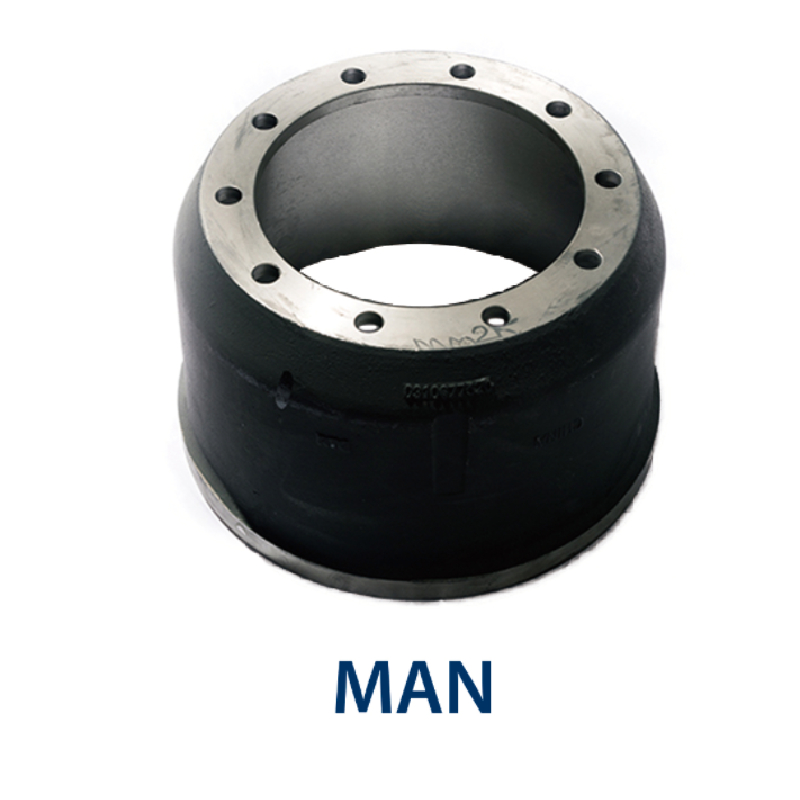des . 04, 2024 16:19 Back to list
how to tell if brake drums are bad
How to Tell if Brake Drums Are Bad
Brake drums are a crucial component of a vehicle's braking system, especially in older cars and trucks that use drum brakes. Unlike disc brakes, drum brakes rely on brake shoes that press against the inside surface of a cylindrical drum to slow down the vehicle. Over time, these components can wear out or become damaged, leading to decreased braking efficiency and increased safety risks. Knowing how to tell if your brake drums are bad is essential for any car owner. In this article, we will discuss several signs that may indicate it's time to inspect or replace your brake drums.
1. Unusual Noises
One of the first signs that your brake drums may be failing is the presence of unusual noises when braking. If you hear a high-pitched squeal or grinding sound, it could indicate that the brake shoes are worn down and are making contact with the metal surface of the drum. This noise serves as a warning that your brake shoes need to be replaced. However, if the noise persists, it could signify deeper issues with the brake drum itself, such as warping or severe wear.
2. Vibration or Pulsation When Braking
Another telltale sign of bad brake drums is the feeling of vibration or pulsation through the brake pedal when you apply the brakes. This could indicate that the brake drum is out of round or has developed uneven wear. If you experience this symptom, it’s essential to have your braking system inspected promptly. Uneven brake drums can lead to reduced braking power and increased stopping distances, putting you and other road users at risk.
If you notice that your car takes longer to stop than it used to, this could be a sign that your brake drums are not functioning correctly. Worn or damaged brake drums can hinder the performance of the entire braking system, leading to increased stopping distances. If you find yourself pushing harder on the brake pedal to achieve the same level of deceleration, it's time to have your brakes checked.
4. Brake Pedal Feel
how to tell if brake drums are bad

How your brake pedal feels is a crucial indicator of the health of your braking system. If the pedal feels spongy, soft, or requires more effort to press down, this could signal problems with the brake drums, brake shoes, or even the hydraulic system. While some pedal issues may be related to brake fluid, consistent problems warrant a thorough inspection of the entire braking assembly, including the brake drums.
5. Visual Signs of Damage
A visual inspection can reveal much about the condition of your brake drums. Look for signs of cracking, gouging, or significant scoring on the drum's surface. If any of these issues are present, the drums may need to be replaced. Additionally, excessive rust or corrosion can weaken the structural integrity of the drums. Regular visual checks will help catch these issues early, ensuring your safety on the road.
6. Brake Drum Thickness
Brake drums have a minimum thickness specification that varies by vehicle make and model. Over time, brake drums can wear down and lose material, affecting their ability to function properly. Mechanics can measure the thickness of your brake drums using specialized tools. If the drums are below the specified minimum thickness, they should be replaced to maintain optimal braking performance.
7. Warning Lights
Many modern vehicles come equipped with a dashboard indicator to alert you to potential brake issues. If your brake light comes on, it could indicate low brake fluid levels, but it may also point to problems with the brakes themselves, including the brake drums. Always pay attention to warning lights and seek professional help if any indicators illuminate.
Conclusion
In summary, brake drums play a significant role in ensuring your vehicle stops safely and efficiently. Regular maintenance and inspections are key to identifying potential issues early. Keep an ear out for unusual noises, monitor your vehicle’s braking performance, and inspect the brake drums visually. If you experience any troubling symptoms or are unsure about the condition of your brake system, consult a qualified mechanic. Taking preventative measures will not only protect your safety but also extend the life of your vehicle’s braking components. Remember, when it comes to brakes, it’s always better to be safe than sorry!
-
HINO Industrial Solutions - ¡Ң���ຽ��е��������˾ | Advanced Efficiency&Customization
NewsJul.13,2025
-
HINO Industrial Efficiency Solutions - ¡Ң���ຽ��е��������˾
NewsJul.13,2025
-
HINO Industrial Solutions - ¡Ң���ຽ��е��������˾ | Advanced Technology&Reliability
NewsJul.13,2025
-
HINO Industrial Efficiency-Jiangsu Hino Industrial|Productivity Optimization&Cost Reduction
NewsJul.12,2025
-
HINO-¡Ң���ຽ��е��������˾|Advanced Industrial Solutions&Energy Efficiency
NewsJul.12,2025
-
Premium Brake Drum Iveco – Durable Drum Brake Drum & Brake Shoe Solutions
NewsJul.08,2025
